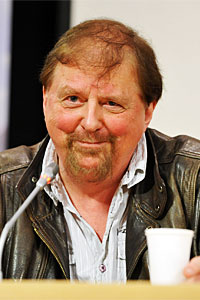On Monday morning, a British judge finally rejected the US attempt to extradite WikiLeaks founder Julian Assange and jail him forever (or at least for 175 years in a high-security 'supermax' prison) on the grounds that he is, as Joe Biden once called him, a "high-tech terrorist".
The vindictiveness of the American security establishment towards whistle-blowers is awesome to behold.
The US government has worked quite hard to get around the natural British reluctance to extradite a non-American non-resident to the United States for a political crime.
Washington says that Assange's sentence would "probably" be only four to six years (but there's no guarantee that it wouldn't actually turn out to be as much as ten times that once he was on American soil).
The American prosecutors also tried to make their desire to get their hands on Assange look non-political by charging him with a civil crime (conspiring to hack into a Pentagon computer network), but he also faces seventeen charges under the Espionage Act for soliciting and publishing confidential information.
Chelsea Manning, the former US army intelligence analyst who gave WikiLeaks that spectacular dump of 725,000 classified cables from American embassies a decade before, was jailed again for eight months in 2019-20 in an attempt to force her to incriminate Assange.
Manning held out under huge pressure, accumulating US$1,000 (around 30,000 baht) fines for each day she refused to talk, and was finally released in March 2020 after attempting suicide.
The fines still stand, however, and she is now bankrupt and owes the US government $256,000.
Vindictive is definitely the word, and Judge Vanessa Baraitser at the Old Bailey (Central Criminal Court) in London had to work quite hard to thwart the US government's campaign to get its hands on Assange.
She found a way, in the end. She ruled that while the American prosecutors had met the legal criteria for Assange to be extradited to the US for trial, their request was denied because the US authorities could not prevent him from attempting to take his own life. He has effectively been in solitary confinement for the past eight years, and his psychological state is too shaky to survive back in solitary (as he certainly would be) in a US prison.
Assange now goes back to Belmarsh prison in London, and back to solitary confinement because the Covid pandemic is raging at Belmarsh. But his application for bail will probably be granted later this week.
He's not completely out of the woods yet, since the US government undoubtedly will appeal, but Judge Baraitser probably based her decision on health grounds because a higher court would be less likely to reverse it. In the meantime Assange can be at home for the first time ever with his partner (whom he met while taking political asylum in the Ecuadorian embassy) and his two young sons.
The road of the whistle-blower is long and lonely, but such people are among the few protections we have against the misdeeds of the overweening security state.
Daniel Ellsberg, celebrated for his theft and publication of the Pentagon Papers detailing the US government's crimes in Vietnam, put it best: "The American public needed urgently to know what was being done routinely in their name, and there was no other way to learn it than by unauthorised disclosure."
Julian Assange is firmly in that tradition. His accusers trot out the usual allegation that the confidential material he published endangered people's lives, but if that were true you would certainly have heard those people's names and details by now.
His revelations about the US military's misdeeds in Iraq were as valuable as Ellsberg's about Vietnam.
Few who saw it will ever forget the video in which the crew of a US Apache helicopter over Baghdad machine-guns innocent civilians while saying things like "Oh yeah, look at those dead bastards" and "It's their fault for bringing their kids into battle."
So take a moment to honour Julian Assange and Chelsea Manning. They have earned it.
